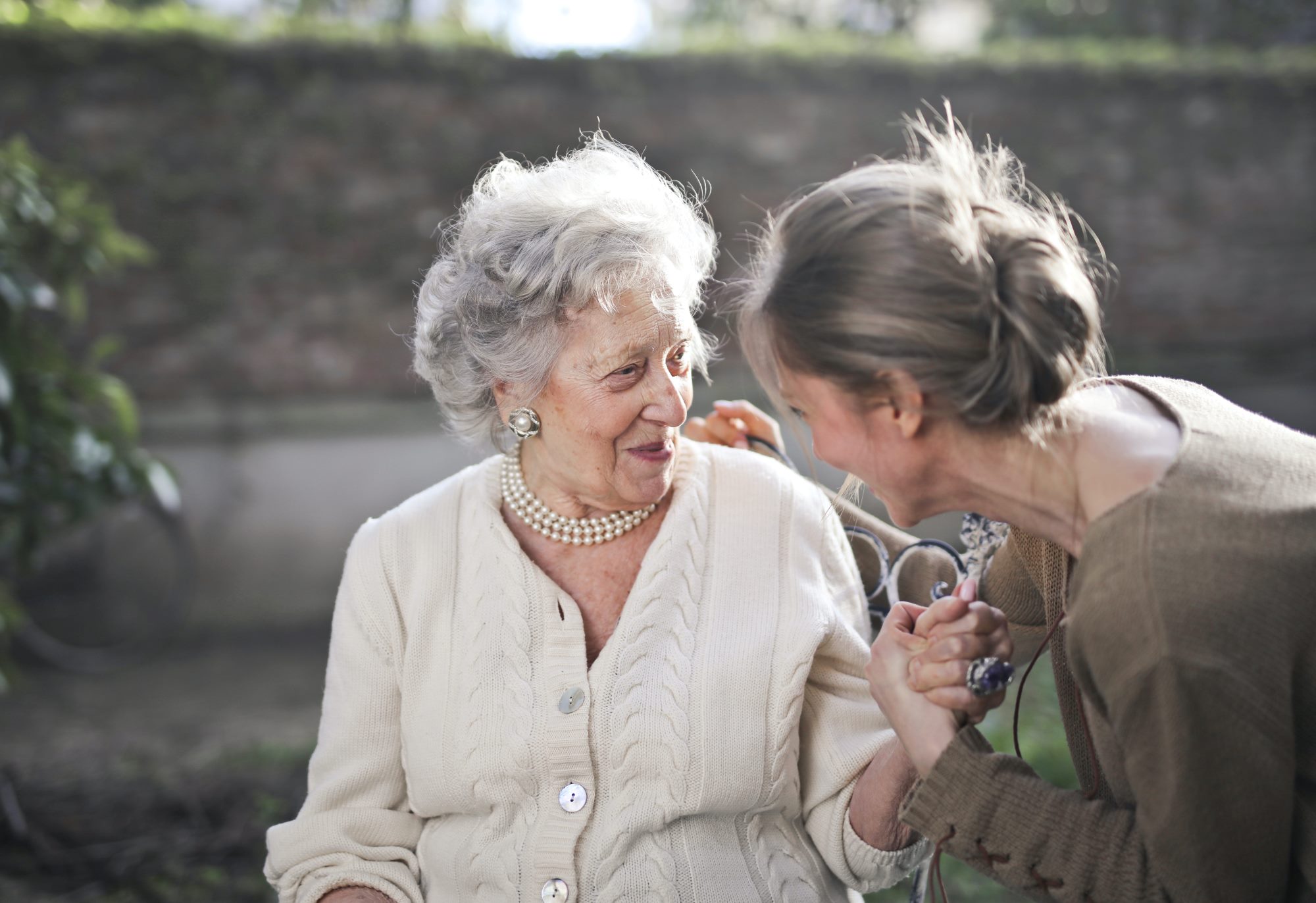
By: Amanda Winstead
Hospice workers are more than familiar with being around family members and friends of their patients who are at a loss for how to handle the end of their loved one’s life. While caregivers in the hospice industry are familiar with navigating this period with compassion and grace, it’s likely that the family and friends of their patient are less experienced with this kind of care.
If you’re a hospice worker in need of resources to provide family members or friends of your patients, this guide is a great tool to share with anyone at a loss for what to do while their loved one is in hospice care.
If you’re a friend, family member, or loved one of someone entering hospice care, you might understandably not know how to provide comfort or be of service. You aren’t alone in this–many people experience the same uncertainty when a loved one enters hospice care. Fortunately, hospice care is designed to provide a comfortable environment for older adults at the end of their life; hospice workers are there to meet the needs of patients and prepared to administer the treatment to live out their last days, in the most comfortable way possible.
The importance of hospice care for your loved one
In our society, we tend to see time spent in hospice care in a negative light, a sign that our loved one is soon to depart; and while it’s true that hospice is part of the end-of-life journey for many, what it’s really for is providing the best quality of life possible during a time where the smallest comfort could make a huge difference. As a friend, loved one, or relative of somebody in hospice care, the best thing you can do is partner with hospice nurses, social workers, and coordinators to support your family member or beloved friend in this difficult, but important period of their life.
But how do you go about supporting someone at the end of their life, as someone who isn’t trained for this experience and may not be prepared for the emotional journey through hospice care? Funeralocity is here to aid those in their time of saying goodbye to a loved one, beyond just helping with funeral arrangements. With that in mind, we’ve compiled some practical tips for how to be there for your family member or loved one during their hospice care journey.
Maintain everyday comforts in hospice
The first, and most important thing you can do is help maintain a sense of normalcy for your loved one during their time in hospice care. Though it can feel like an especially daunting period of time in anyone’s life, hospice care is a normal step in the continuum of care, like treatment for an illness in an Urgent Care or an ER visit for surgery. In our last days, we still want to experience as much of everyday life as possible with the people they love, and this goes for your family member or loved one in hospice care as well.
Encouraging self-care
One thing you can do for an older adult in hospice care, is encouraging them to continue to practice self-care, in whatever way possible that makes them feel comfortable. Bringing them their favorite books or movies, aiding them with hygiene and skincare routines, and encouraging them to engage in hobbies they enjoy can help maintain a sense of normalcy and boost their mental health. As a child, family member, or friend you can work with their hospice nurse or social worker to communicate the self-care activities that bring comfort, and provide instructions for how to provide or assist in these small acts of self-care.
Sticking to routines
While a transition into hospice care (whether it’s at-home or in a facility) can disrupt the day-to-day routines that were probably familiar for many years, there are still ways to carry on some of the aspects of the patient’s schedule to their new routine in hospice care. If you have a set time that you typically visit with your loved one, try and keep your visits around that same time, enjoying the same quality time even after they’ve transitioned to hospice care. You can also find ways to acknowledge special days, like planning a birthday party, having an anniversary lunch or dinner, or bringing something to them in honor of any holidays that occur during their time in hospice care.
This kind of normalcy brings reprieve to those in hospice care, and can easily be coordinated with hospice nurses or social workers overseeing the care of your loved one.
Provide emotional support
The reality of needing hospice care at all can take a toll on patients and the people closest to them. Your family member or loved one in hospice care is likely experiencing a complex range of emotions, and, like everyone else, will have days where hospice care is tolerable and days where it feels overwhelming.
One of the greatest gifts you can give an older adult in hospice is a listening ear, and if needed, a shoulder to cry on. Grief is a complex emotion, one that can do strange things to people’s overall mental and physical health; and while your loved one may have some therapeutic support through their hospice caretaker, they’ll likely want to communicate how they’re feeling, what they’re struggling with, and plans for after their passing. Funeralocity has extensive resources for pre-planning a funeral or memorial service, as well as information on how to emotionally navigate the subject as a hospice nurse.
Take cues from your loved one in hospice
Letting someone in hospice care choose when to have certain conversations about plans or how they want to receive care, is an effective way to allow them some power in a situation that can lead people feeling powerless. Don’t pry, though you can share how you’re feeling if you feel that may open the door to a greater discussion. It’s ok to have days where heavy conversations aren’t on the table. Just enjoy your time with them however you choose, and wait until everyone’s emotional batteries have recharged to talk again.
The most important thing is that you’re there and that they know they can talk to you when they need to, about whatever they want to. As long as you provide them a safe space to openly express themselves, you’re opening an avenue to potential relief.
Partner with your hospice care team
Hospice nurses, caretakers, and social workers are highly experienced in dealing with the end-of-life journey. Make sure to understand their role and responsibilities right from the start of your loved one’s time in hospice care so you can ensure you’re not overloading them with tasks that take away from their main purpose (caring for their patient).
Getting clear on the resources included in hospice care can be a crucial tool for when you’re in need of direction on how to handle practical conversations like medical directive, end-of-life plans, and the medical rights of your family member or friend in hospice care.
Review the expectations and responsibilities held by different hospice team members with our comprehensive guide to the roles in hospice care.
Approach end-of-life plans with patience and compassion
Finally, one thing you can do to help ease the stress of a loved one’s time in hospice is help with end-of-life planning. You can help them get their affairs in order by helping them with tasks like:
- Writing their will
- Organizing vital insurance documents
- Getting clear on funeral arrangements
- Providing written instructions for safeguarding their final wishes
Facilitating these tasks with speed and compassion can significantly ease stress for your loved one, providing reassurances that their wishes will be honored after their passing and they’ll be taken care of as they desire during time in hospice.
If this is your first time with funeral planning and you have no idea where to start, feel free to loop in your hospice staff, as they can provide you with resources and actively aid in planning. Funeralocity is a free, online resource for searching and comparing funeral homes and cremation providers across the country. We pride ourselves on being a useful resource for hospice workers, hospice patients, and their families during the end-of-life journey. We make funeral planning easy, so hospice workers can focus on providing compassionate care and family and friends can focus on making the most of the time spent with a loved one in hospice.
Amanda Winstead is a writer from the Pacific Northwest. Follow her on Twitter








